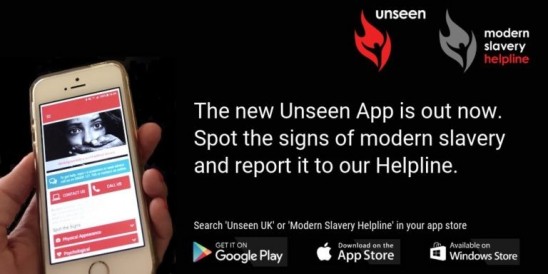Child Trafficking
The formal definition of child trafficking is contained within the United Nations (UN) international protocol ratified by Members of the General Assembly in 2000, referred to as the Palermo Protocol:
“the recruitment, transportation, transfer, harbouring or receipt of a child for the purposes of exploitation”.
The Palermo Protocol establishes children - the UN defines children as all those under the age of 18 - as a special case, and any child found to have been moved for exploitation is considered to be a victim of trafficking, whether or not they have been deceived, because it is not considered possible for children to give informed consent.
While the common perception of trafficking is of children being brought into the UK from abroad, practitioners must remain alert to “internal or domestic trafficking” which involves children and young people being exploited within and across the country.
These children may be UK citizens or they may originally have come into the country from abroad a number of years previously.
The United Kingdom is considered a high-risk destination country for victims of human trafficking and a number of case studies and data collection exercises have documented the existence of potential child trafficking cases into and out of the country.
Agencies and individuals should bear in mind that it is essential to take timely and decisive action where child trafficking is suspected because of the risk of the child being moved.
Child trafficking is often associated with unaccompanied and separated child migrants, refugees or asylum-seekers, but case-based evidence and research by ECPAT UK shows a more complex picture.
In the UK, children can be trafficked for sexual exploitation, domestic servitude, forced labour and criminal exploitation.
Criminal exploitation is when children and young people are forced, enticed or coerced into committing crimes for the benefit of others. Recently, more is becoming known about the criminal exploitation of children and young people in the UK.
Visit The Children’s Society for more information.
Key resources
National Guidance for Child Protection in Scotland 2023
Scottish Government Review of the Trafficking Strategy 2023
What Works? A review of interventions to combat modern slavery
Age Assessment Practice Guidance for Scotland
If you have any concerns regarding alleged human trafficking or criminal activity in your area, please refer to the following services for their assistance:
Email the Police Scotland National Human Trafficking Unit: SCDNationalHumanTraffickingUnit@scotland.pnn.police.uk
Call the Modern Slavery Helpline: 08000 121 700
Call the NSPCC Child Trafficking Advice Line - 0808 800 5000 (Lines open during office hours)
In 2017, the Scottish Government launched a public campaign to help raise awareness of human trafficking in Scotland.
As part of this campaign, the government worked in partnership with Trafficking Awareness Raising Alliance (TARA) to produce this video and to launch an app to help people spot the signs of modern slavery and take action to report.

The Unseen App – launched in 2018 - provides a simple guide to recognising the signs of modern slavery and reporting concerns in confidence to free more victims of slavery.
The app was developed for Unseen by the helpline’s founding partner BT and can be found by searching ‘Unseen UK’ in app stores.
The Unseen app is available for Android, iOS and Windows App Stores in the UK.
Useful links
- Human Trafficking awareness-raising leaflets are available in English, Polish, Romanian, Lithuanian, Bulgarian and Vietnamese
- Explore this toolkit to find out how to improve your local partnerships response to slavery
- Access training on Modern Slavery
- Scottish Government information on human trafficking
- Independent Anti-Slavery Commissioner's Office


